#my life philosophy
Explore tagged Tumblr posts
Text

Kadang,
Lebih baik untuk melepaskan
Berbesar hati mengizinkan mereka untuk tumbuh dan memancarkan warnanya sendiri
Tanpa warna dan apapun dari kita
Dan kita pun demikian
Bertumbuh
Melepaskan yang membebani
Dan memancarkan warna baru
Biarkan apa yang pernah terjadi
Diukir jadi cerita indah untuk dihormati
#move on#melepaskan#let it go#kontemplasi#bertumbuh#growth#psychology#self love#mindfulness#my life philosophy#reminder#self reminder#happiness#pengingat#love
23 notes
·
View notes
Text
My life is a pair of black Louboutins with red outsoles, and they go on my feet, not yours.
1 note
·
View note
Text

#quotes#spilled thoughts#english literature#literature#love poem#my words#philosophy#poem#poems on tumblr#spilled poetry#spilled ink#sad thoughts#shakespeare#looking for alaska#artists on tumblr#divorce#digital art#drawing#vent#vintage#tw#text#in love with my best friend#feminism#mental health#myself#love quotes#life quotes#loss#life
4K notes
·
View notes
Text



Starscream got infected by a truth telling virus, and with that comes a rare opportunity for an interrogation
Some things come out that even Starscream didn’t know
#fellas is it gay to have your souls intertwined throughout every universe and each time you are together for millions of years?#idk if I lived for a million years and found someone who made me feel so strongly that keeps my long life interesting#I would never let them go even if I love or hate them#if the Decepticon philosophy is that they exist to fight then this is practically a marriage proposal#transformers#transformers fanart#transformers g1#megatron#megastar#starscream#megascream#cw sui mention#maccadams#I don’t know how lighting works
436 notes
·
View notes
Text
𝘼 𝙁𝙡𝙤𝙬𝙚𝙧 𝙤𝙣 𝙏𝙝𝙚 𝙋𝙖𝙩𝙝.

Sometimes a simple detail, found in a deep look, unleashes an unexpected surprise, creates a great space, a place where you feel that nothing inside you will be the same again and you will feel that it grows and will remain in your heart.
— 𝙅𝙪𝙖𝙣 𝙁𝙧𝙖𝙣𝙘𝙞𝙨𝙘𝙤 𝙋𝙖𝙡𝙚𝙣𝙘𝙞𝙖.
#writers on tumblr#attempt at poetic action#juan francisco palencia#spilled ink#writing#reflexions of my life#love poem#feelings#words from the bottom of the heart#life philosophy#light academia#autumn 2024#from mexico to the universe#vitruvio#strange love#she and me#delta#a flower on the path#quotable quotes
363 notes
·
View notes
Text
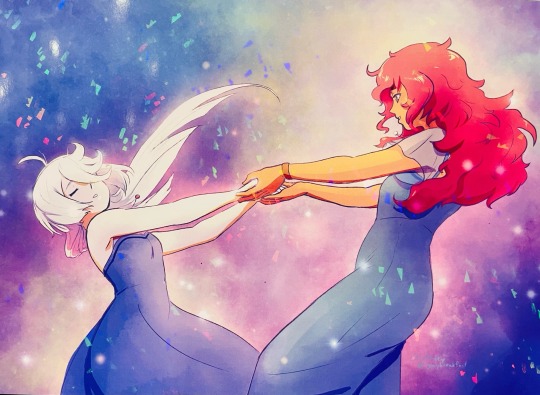
Trust
#sulemio#g witch#Suletta#Miorine#gundam#my art#I love these two as much as Rupphire. Maybe even more? Time will tell.#They are relatable in some ways that Rupphire didn’t touch on#I met my wife when I was 17 and while the scenarios we met under aren’t as intense as GUNDAM#the parallels are uncanny enough to be both nostalgic and validating#helped us recontextualize some past trauma and philosophies about healing#This changed my life as much as Steven Universe#and Sarazanmai
437 notes
·
View notes
Text
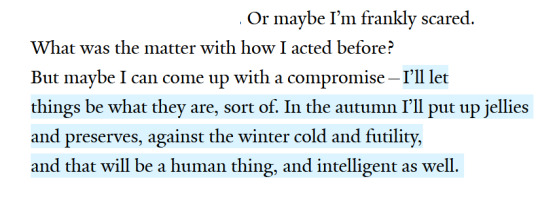
John Ashbery, from "My Philosophy of Life" [ID'd]
#q#lit#quotes#poetry#typography#id included#john ashbery#my philosophy of life#all these wonders still to be ours#m#x
409 notes
·
View notes
Text
"The beauty of human connection defies logic, tradition, and our inherent beliefs. It drives our need for passion, touch, and understanding from those who see us as we are, not as we pretend to be."
~beccawise7💜🖤('23)
#my writing#my words#my mind#my thoughts#published work#connection#intimacy#lovers#desire#soul connection#my writings#writers on tumblr#authors#spilled ink#writerscommunity#female writers#deep thoughts#human connection#soul connections#the human condition#human touch#stoic philosophy#life quotes#soul food#dig deeper#feed your soul#soulful#d/s
292 notes
·
View notes
Text
“To be hopeful in bad times is not just foolishly romantic. It is based on the fact that human history is a history not only of cruelty but also of compassion, sacrifice, courage, kindness. What we choose to emphasize in this complex history will determine our lives. If we see only the worst, it destroys our capacity to do something.
If we remember those times and places–and there are so many–where people have behaved magnificently, this gives us the energy to act, and at least the possibility of sending this spinning top of a world in a different direction. And if we do act, in however small a way, we don’t have to wait for some grand utopian future. The future is an infinite succession of presents, and to live now as we think human beings should live, in defiance of all that is bad around us, is itself a marvelous victory.” - Howard Zinn, The Optimism of Uncertainty, Sept 2004
this is what I will remember of today: a man at my polling place happily announcing that it was his first time voting since becoming a citizen.
I will remember this: when he cast his ballot, the applause and cheers of all the poll workers and his fellow citizens.
#this goddamn essay has informed my life philosophy for the past two decades#save me howard zinn#us elections
177 notes
·
View notes
Text
john and gale in stalag luft iii // "violet hill" for @swifty-fox
if you love me, won't you let me know?
#masters of the air#mota#motaedit#hbowaredit#clegan#john egan#bucky egan#gale cleven#buck cleven#buck x bucky#kbsd.amv#kbsd.hbow#christ. now that THAT'S out of the way:#phew this was a tough one to make#the goal was to condense the stalag arc into one video#while also highlighting buck and bucky's opposing philosophies on prison life / escape / risk / coping mechanisms / etc#i'm really proud of how it turned out!!#song choice + amount of sound bites = very old school amv vibe which is fun#thank you swifty for putting this song on my radar!#me watching every single stalag scene: they were in love here#and it didn't fix everything!!!!!!!!! sickos
350 notes
·
View notes
Text
Tentang di mana kamu berada saat ini
Belajar untuk gak melihat titik seseorang berdiri dengan tatapan iri. Mungkin adanya perbandingan menjadi godaan untuk terus memaksakan diri supaya sesuai dengan standar orang lain. Seolah-olah kalo tidak sama artinya salah. Kalo berbeda, artinya kalah.
Padahal mungkin di titikmu dan di titiknya, kalian berdua sama-sama dihadapkan dengan tantangan. Masalahmu tak jadi lebih sepele hanya karena kamu belum ada di titiknya.
Mungkin belum sampainya di titik yang sedang orang lain pijak bukan karena kamu buruk. Tapi kamu memang belum layak.
Belum layak karena kamu masih disiapkan banyak bekal. Diberikan hal-hal lain yang bermakna di posisimu sekarang.
Jangan sampai, kamu kehilangan value. Kehilangan kesempatan menemukan hal-hal bermakna di tempatmu sekarang hanya karena pandanganmu terlalu fokus ke seberang.
Mari merayakan pencapaian mereka, Sambil belajar memahami betapa hebatnya mereka dengan segala apa yang dilaluinya untuk sampai di sana.
Sama sepertimu, Yang hebat untuk sampai di titikmu saat ini 🫰🏻❤️
#Pencapaian#Progres#Proses#Iri#Perbandingan#Comparison#Envy#Cemburu#Self worth#Insecure#Insecurity#Self love#Reflection#Kontemplasi#self reminder#Reminder#Mental health#kesehatan mental#Happiness#psychology#Psikologi#my life philosophy
13 notes
·
View notes
Text

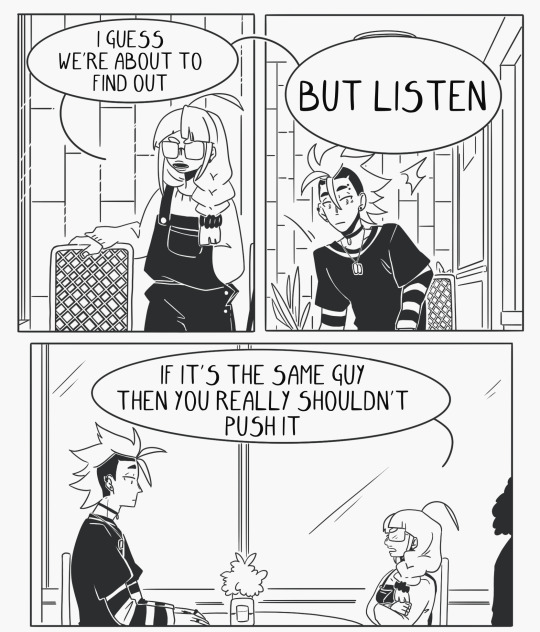
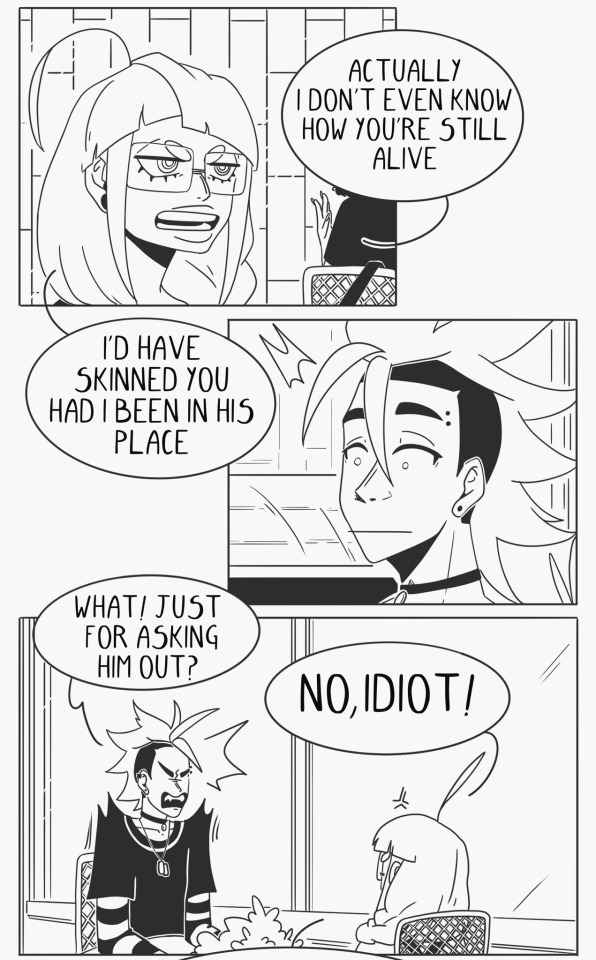
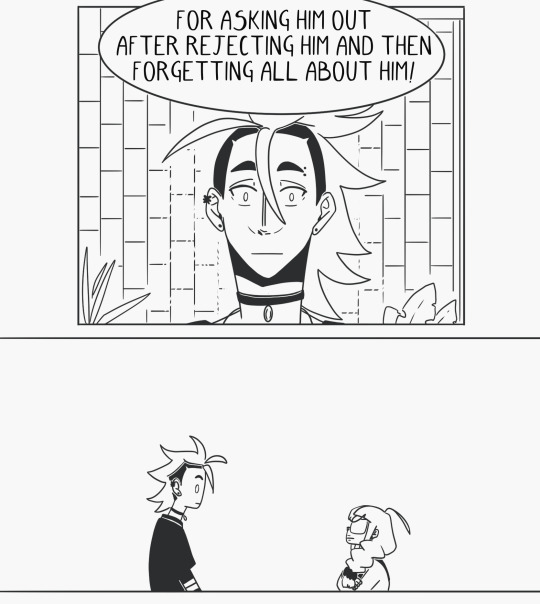
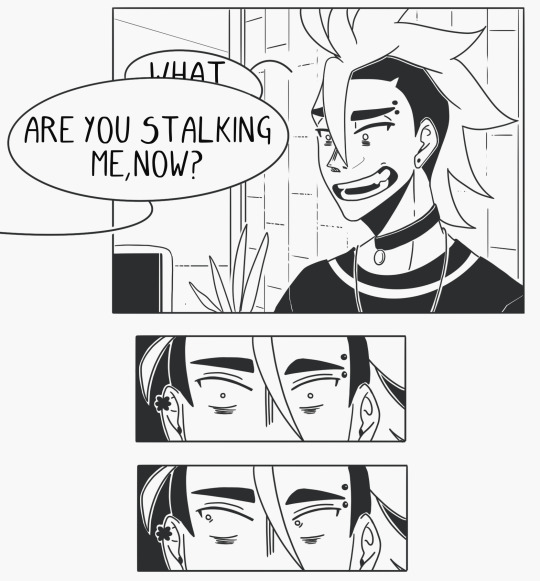
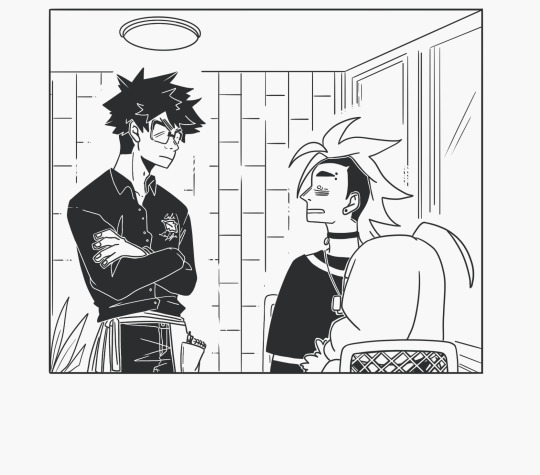
The Housecat Philosophy - Ep 45
Ep 00 || < Prev || Next >
Read ahead on Patreon || Catch up on Webtoon || support me on ko-fi~✨
#artists on tumblr#the housecat philosophy#original comic#webcomic#original art#my sketches#he’s everywhere !!!!!!!#we’ll explain why at some point dw about it#but mainly it’s just daves abysmal luck#i love to make his life harder than it needs be :)#btw guys i just realized but it’s nearly been one year since I started posting this comic on patreon !!!!!!!!!! insane !!!!!!!#and i’m just now getting close to finishing the first part of it ! i still have three characters to introduce !!!!!#this is really gonna take me a while huh#nice
377 notes
·
View notes
Text

#quotes#spilled thoughts#english literature#literature#love poem#my words#philosophy#poem#poems on tumblr#spilled poetry#relatable quotes#love quotes#life quotes#quoteoftheday#spilled ink#sad thoughts#shakespeare#looking for alaska#artists on tumblr#digital art#beautifulboy#vent#vintage#tw#text#heartbreak#feminism#drawing#writing#reading
3K notes
·
View notes
Text
One thing that I feel is really interesting and often forgotten about Essek is that fundamentally, his characterization has been from the start based upon his desperation for external perspectives and connection, which, along with much of his narrative and mechanical positioning, means that he actually has an extraordinary and almost (but not actually, as I'll show) counterintuitive capacity for both growth and trust.
(Buckle in. This is a long one.)
In particular, I would argue, knowing now that many places where the plot touches Ludinus have long been marked for connecting back into the current plot, that he was quite possibly built as a prime candidate for radicalization by the Ruby Vanguard. He felt isolated from his culture, he was desperate for other connection, and he was certainly of the type to believe he was too smart to be drawn into such a thing, given his initial belief that he could control the situation and the fallout. If things had gone any other way, he easily could've been on the other side by now.
As such, he has been hallmarked by being fairly open to suggestion, perhaps for this reason, but the thing about that kind of trait is that it is both how people are radicalized and deradicalized. This is certainly true of Essek, who experienced genuine kindness and quite frankly strangeness from the Nein and was able to move from the isolation the Assembly had engendered to meaningful and genuine connection, largely propelled by his own internal reflection. By the time Nein are aware of his crimes, he's already begun to express regret to an extent and, furthermore, doubt in the Assembly, including explicitly drawing a line against Ludinus, even in a position where he was on his own and probably quite vulnerable.
Similarly, when the Nein reach the Vurmas Outpost some weeks later, he has moved from regret for the position he's ended up carrying a heavy remorse. This makes sense! He's fairly introspective, seems used to spending a lot of time in his own head, and was left with plenty to mull over. It's not some kind of retcon for him to have progressed well past where the Nein left him; it just means he's an active participant in the world who has done his own work in the meantime.
This is another interesting aspect to him. I've talked about this a bit before but I cannot find the post so I'll recap here: antagonists in D&D have significantly more agency than allied NPCs. Antagonists are active forces, against which the party is meant to struggle; allies are meant to support the PCs, which means they tend to be more passive in both their actions and their character growth. Essek was both built as an antagonist, in a position that gives him significant agency, and also was then given significant opportunity to grow specifically to act as a narrative mirror for Caleb's arc. Even when he becomes a more traditional D&D ally, he still retains much of that, though he occupies a supporting role.
I believe that this is especially true because of the nature of Caleb's arc, which I've already written on; the tl;dr of this post is that Caleb is both convinced that he is permanently ruined and also desperate to prove that change is possible. Essek is that proof, because he is simply the character in a position to do so. But this also means that his propensity for introspection and openness is accentuated! He has to do the legwork on his own, for the most part, because that's where he is in the meantime.
But he still ends the campaign necessarily constricted; he is under significant scrutiny, he's at risk from the Assembly, and he goes on the run fairly soon after the story ends. He spends most of the final arc anxious and paranoid, which is valid given the crushing reality of his situation. It would be very easy to extrapolate that seven years into this reality, he would be insular, closed off, and suspicious of strangers, even in spite of the lessons he's learned from the Nein and their long term exposure.
So seeing his openness and lightness now is surprising, but at the same time, given this combination of factors in his position in the narrative over time and his defining traits, it's not by any means unreasonable.
But one thing that I found so delightful is how much trust he exhibits, which is obviously a wild thing to say about Essek in particular, given much of what he learns is both earning and offering trust, which was something he says explicitly in 2x124 that he's never really experienced: "I've never really been trusted and so I did not trust." It makes up much of the progression of his relationship with Caleb, and the trust that he is offered by the Nein in walking off the ship is the impetus he needs to grow.
But I think it's easy to talk about trust when it comes to people who have proven themselves to you or to whom you've ingratiated yourself, and that's really the most we can say about Essek by the time he leaves the Blooming Grove. There is this sense in a lot of discussion of trust (not solely in this fandom) that it is only related to either naivete or love, but there's far more to it. Trust at its best is deliberate—cultivating an openness to the world at large is a great way to combat cynicism and beget connection instead. It allows a person to maintain curiosity and be open to experience, but it can be incredibly difficult to hold onto.
It is clear that the Essek we meet now is a very pointedly and intentionally trusting individual. He trusts Caleb and by extension Caleb's trust in Keyleth, as he shows up and picks up a group of strangers from a foreign military encampment and walks in without issue. He trusts the Hells to follow his lead moving through Zadash and to exhibit enough discretion so as to avoid bringing suspicion upon all of them. He trusts that Astrid will respond well to his entrance, but he also trusts himself and the Hells enough to execute a back-up plan in the case that she doesn't. In the end, he even trusts them enough to give them his name and identity.
He doesn't scan as someone who has spent half a dozen years living like a prey animal, afraid of any shadow he runs across in an alley, withdrawn into himself and an insular family, which would've been an easy route for him to take. He scans as someone who has learned the kind of trust borne of learned confidence and a trained eye for good will and kindness, which are crucial weapons one would need for staving off cynicism in his circumstances—as if he has survived thanks more to connection and kindness than paranoia and isolation. (If we want to be saccharine about it, he scans quite poignantly as a member of the Mighty Nein.)
So it is easy to imagine this trust and openness as a natural progression of his initial search for perspectives external to his own cultural knowledge. Though he makes those first connections with the Assembly to try to vindicate his personal hypotheses, he finds in them exposure to the deepest corruption among Exandrian mortals, which could've—and did, for a time—turned him further down that same dark path.
But it's also this same openness to exposure from the wider world that allows the Nein to influence him for the better, and in spite of the challenges he's certainly faced simply surviving over the past seven years, he seems to have held onto this openness enough to move through the world with self-assurance and a willingness to extend the kinds of trust and good will that he has been shown.
(I would be remiss not to mention that I was reminded about my thoughts on this by this lovely post from sky-scribbles and their use in the tags of 'light' to describe Essek's demeanor this episode, which is really such an apt word for it.)
#something something hope is a weapon hope is a discipline hope is a garden to cultivate!!!#HE'S SO GOOD HE IS TRULY EXEMPLAR OF THE WHOLE PHILOSOPHY OF THE NEIN AND I DO NOT THINK THAT'S AN ACCIDENT#truly just like. enormous proponent of letting trust and curiosity into your heart regardless of the horrors.#it's hard and it makes you more vulnerable and sometimes it hurts so so much but it will also save your fucking life!#cr spoilers#critical role#essek thelyss#cr meta#I was gonna apologize for the length but I'm not sorry. I'm also not sorry for being insane about him but he's so special to me.#head in my hands he's so GOOD HE'S BEST BOI! GUIDING LIGHT NORTH STAR!!! LOOK AT HIM!!!#also truly if i had two nickels for a span of time with no essek sightings where I wrote a lot of fic#with deliberate personal acknowledgment that I was writing some pretty maximal arcs for him in terms of character growth#and then end up getting essek for half an episode and having to go OH WE'RE GOING THAT FAR ACTUALLY. FUCKING INCREDIBLE.#yanno. two nickels. but good lord I am thriving that it's happened twice#augh this is ONE of the pieces I need to write this week. we're not gonna talk about it
342 notes
·
View notes
Text
𝐴 𝑓𝑙𝑜𝑤𝑒𝑟 𝑜𝑛 𝑡ℎ𝑒 𝑟𝑜𝑎𝑑.
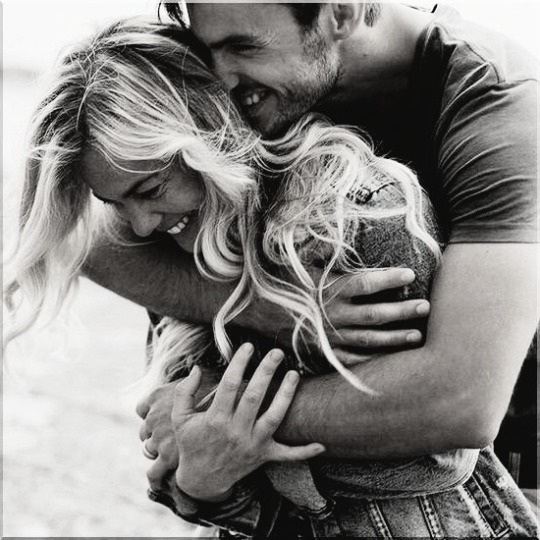
“ They say that everything you love, sometimes you lose little by little, but in the end, love will return in a different form than the one you knew but never had…”
— Juan Francisco Palencia.
#writers on tumblr#spilled ink#attempt at poetic action#juan francisco palencia#from mexico to the universe#reflexions of my life#feelings#words from the bottom of the heart#life philosophy#writing#a flower on the road#love poem#light academia#delta#the power of love#strange love#she and me#love is a strange thing#autumn 2024
325 notes
·
View notes
Text
Shinichi angst is so damn good. He's in his own body but it doesn't feel like himself. His life is "dead" even though he's alive. When he comes back he will never go back to his old self. He can go back to his body but his life will never be quite the same (for better or worse)
He was just a 17 kid who had dreams ambitions friends he had to "abandon". Imagine putting up an act 24/7 and not being truly able to say the things you actually want to. And yet- this false identity of his started to blend in with his "authentic" self.
He will have to "kill" Conan like he did with himself eventually. Like I know this this is the whole point of his character but I feel like it's easy to forget due to everything going on, and every so often I'm reminded of this and go bonkers over it. Does anyone get me 😭
#detective conan#something something about how awful it is that the bad things of life change us fundamentally. ever and always. time is always foward and we#cannot go back no matter how much we want to. but life isnt going to end over that. we gotta keep going too; and perhaps that change will#lead us to good things#man i should sleep already. it is 5 am rn lol#i expect to wake up from this philosophy induced post and cringe at it later lmao#shinichi kudo#my posts#detco#also yes shinichi trans allegory slay
282 notes
·
View notes